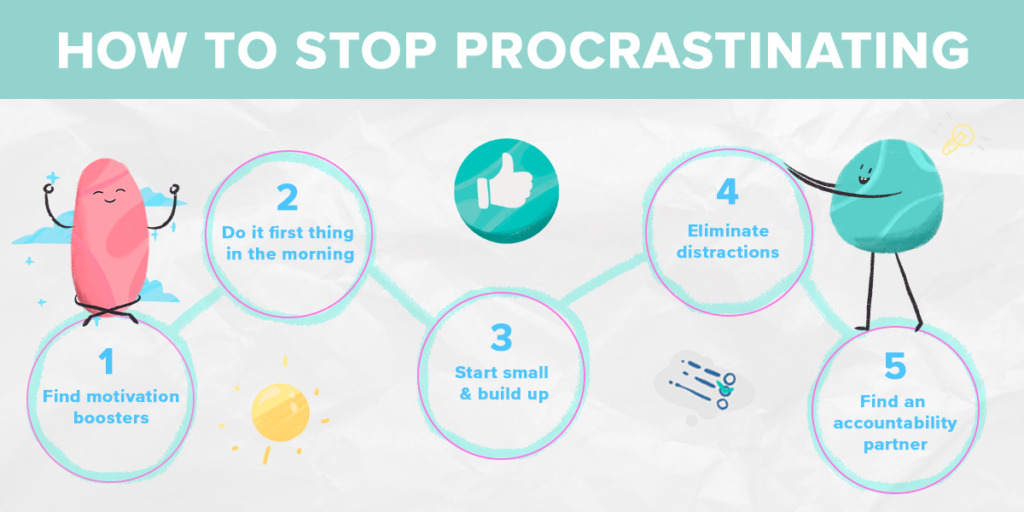This article explores the science behind motivation and procrastination, offering practical strategies to stay productive and overcome delays. It covers the causes and impacts of procrastination, while providing actionable tips like goal-setting, visualization, and time management techniques. Readers will also find insights on building long-term motivation and maintaining accountability for sustained success.

Staying motivated can often feel like a challenging task. Moreover, procrastination tends to creep in when tasks feel overwhelming. However, understanding the science behind these behaviors can empower you to overcome procrastination and maintain long-term motivation.
Understanding Motivation and Procrastination
Motivation is the driving force that encourages you to take action. Furthermore, it can stem from intrinsic factors, like personal satisfaction, or extrinsic factors, such as rewards and recognition. On the other hand, procrastination often arises when tasks seem difficult, dull, or anxiety-inducing.
Neuroscientific research reveals that procrastination is closely linked to the brain’s limbic system, which governs emotions. Consequently, when the perceived discomfort of a task outweighs its benefits, the brain prioritizes immediate relief, leading to avoidance.
The Impact of Procrastination
Procrastination is more than just a harmless habit. In fact, it can lead to chronic stress, lower academic or professional performance, and diminished self-confidence. Additionally, constant avoidance of tasks can reinforce a negative feedback loop, making future productivity even harder.
Recognizing the Causes of Procrastination
Understanding why procrastination occurs can help in effectively managing it. For example, common causes include:
- Fear of Failure: Worrying about poor outcomes can lead to avoidance.
- Perfectionism: The desire for flawlessness often results in delay.
- Lack of Motivation: Tasks lacking personal significance are harder to begin.
- Poor Time Management: Inefficient scheduling increases task avoidance.
Practical Strategies to Stay Motivated
Set Clear Goals
Establishing specific, achievable goals provides clarity and direction. Moreover, breaking large tasks into smaller, manageable steps makes them feel less daunting.
Visualize Success
Visualization techniques involve mentally rehearsing successful task completion. Not only does this boost motivation, but it also reduces anxiety.
Develop a Reward System
Create incentives for task completion. Consequently, rewarding yourself with a small treat or break reinforces positive behavior.
Minimize Distractions
Identify and eliminate distractions in your environment. For instance, turn off notifications, use productivity apps, and establish dedicated workspaces.
Techniques to Overcome Procrastination
Use the 5-Second Rule
Count down from five and commit to immediate action. In turn, this interrupts hesitation and encourages action before procrastination takes hold.
Apply Time Blocking
Allocate specific time slots for tasks using a calendar. Structuring your day in this way prevents decision fatigue and promotes accountability.
Practice Self-Compassion
Avoid harsh self-criticism. Instead, acknowledge mistakes, learn from them, and focus on progress rather than perfection.
Leverage the Pomodoro Technique
Work in focused 25-minute intervals followed by a 5-minute break. As a result, this enhances focus and minimizes mental fatigue.

Building Long-Term Motivation
Sustainable motivation requires ongoing effort. Therefore, regularly assess your progress, adjust goals as needed, and celebrate achievements. Additionally, maintaining a growth mindset encourages resilience in the face of challenges.
The Role of Accountability
Sharing goals with a mentor, friend, or accountability partner increases commitment. Furthermore, regular check-ins offer support and constructive feedback.
You don’t have to see the whole staircase, just take the first step.
Martin Luther King Jr.
Conclusion
Overcoming procrastination and staying motivated is a continuous journey. By understanding the underlying psychological factors and applying these practical strategies, you can enhance productivity and achieve your goals. Above all, stay consistent, remain patient, and watch your motivation grow.


